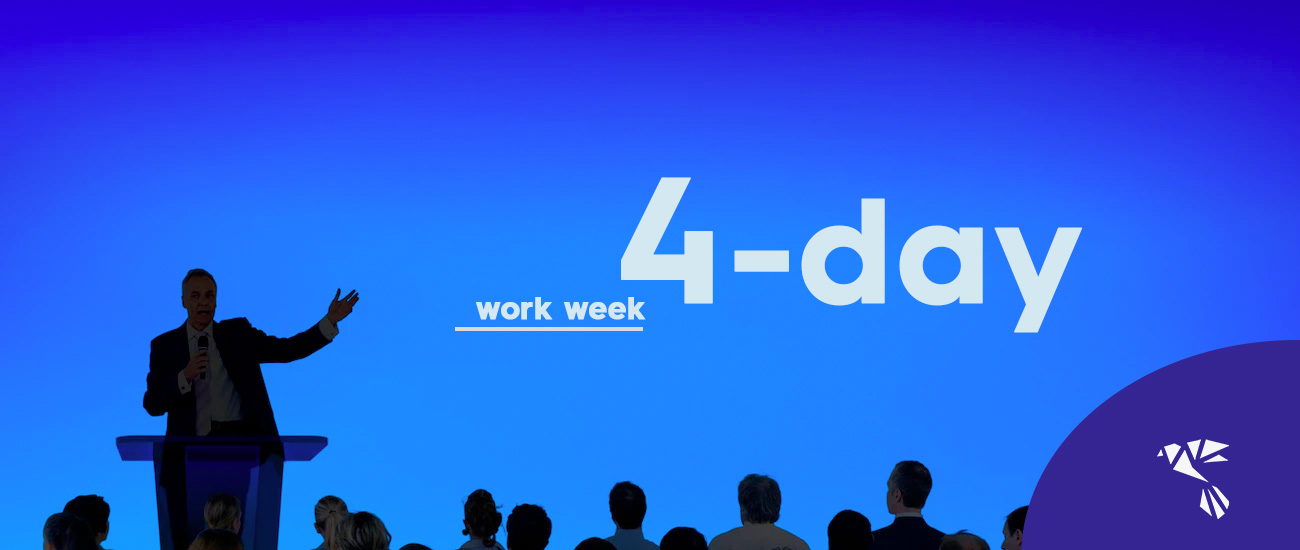The 4-day workweeks have provoked a broad debate about productivity among small and medium-sized business owners in North America.
Thus, it has been discussed how reducing the workweek impacts businesses‘ growth by improving workers’ productivity and well-being.
In this blog post, Remoto Workforce will tell you everything you need to know about the 4-day workweek from the perspective of industry insiders.
What is a 4-Day Workweek?
A 4-workday week, also known as a compressed work schedule, is a 32-hour workweek without loss in productivity, wages, and benefits for well-being.
According to Investopedia, in a 4-workday week, everyone works from Monday to Thursday and has Fridays off. Also, other companies leave Monday or Wednesday off.
Although 4-day workweeks are a tendency in human resources departments and businesses, only a few countries have implemented measures oriented to have a compressed work schedule.
For example, Spain, Iceland, Scotland, Ireland, New Zealand, Japan, UAE, and Belgium have adapted the legal workweek to only 32 hours to benefit workers and businesses.
In this video from ABC News, you will learn more about how a 4-workweek can be introduced in California.
Also, you can check our job profiles to identify essential positions in switching to 4-day workweeks.
Working Less Improves Our Mental and Physical Health: True or Myth?
Working is correlated with higher performance. According to Wanda Krause, the countries performing the highest have the shortest workdays.
This partially explains why 4-day workweeks may benefit mental and physical health. In addition, shorter workweeks can positively impact how companies build outsourced, diverse, and inclusive remote workforces.
However, experts also say that even though working less increases productivity, it is still hard for the body and the mind.
In an exciting blog post, Mike Fishbein explains the psychology behind overworking. “Tim Ferris’ proposition of a “four-hour work week” is attractive to our rational thinking brains, but in practice, it’s surprisingly difficult to work less”, says Fishbein.
So instead, we work hard and long because this is a response to how humans have evolved.
However, determining if shorter workweeks improve employees’ well-being depends on the perspective.
Impacts of 4-Day Workweeks for Businesses
Are 4-day workweeks good for businesses? While workers feel attracted to working less, business owners are afraid of this idea.
For instance, in Canada, a discussion of implementing 4-day workweek programs is taking place. Alida Inc., a technology company based in Toronto, introduced this initiative as an element of its ambitious human resources strategy.
After hearing its employees for an entire year, Alida Inc. landed on this decision and empathized with them on significant issues, such as burnout, health, and safety.
Then, this IT company produced a shift in business operations to maintain total salaries and benefits despite allowing Fridays off after analyzing employees’ points of view.
Alida’s CEO and directive staff also consider that, even with a shorter workweek, employees have the right to decide how and when they work. By doing this, Alida Inc. decided to foster flexible careers.
In addition, thousands of employees in the U.S. are testing the 4-Day Workweek Project designed in universities and organizations.
Recently, Oxford University and 4 Day Week Global created a 4 Day Week Global Program to lead businesses to discover efficient approaches to work that seriously consider human well-being.














